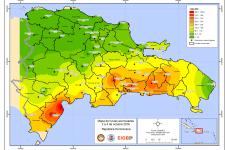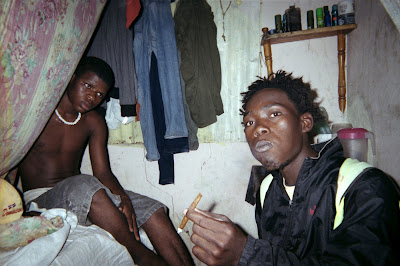Project HOPE recently delivered COVID-19 Mental Health and Resiliency training for health care workers in the Dominican Republic and Indonesia. Since June, Project HOPE has reached more than 2,400.
- Dominican Republic 2011 Mac Humanitarian Project Proposal
- Dominican Republic 2011 Mac Humanitarian Project Management
- Dominican Republic 2011 Mac Humanitarian Project Manager
- Dominican Republic. Global Healthsites Mapping Project. OCHA coordinates the global emergency response to save lives and protect people in humanitarian crises.
- Local news outlet El Dia reported, Dominican Republic president Luis Abinader recently cooled relations with China, the large-scale project was struck years ago to strengthen the relations between the Dominican Republic and Asian country.
Attachments
Key Global Updates
With generous support from AstraZeneca, Project HOPE is implementing three critical programs in Latin America & the Caribbean (LAC): 1) Project ECHO sessions on COVID-19 for Spanish and Portuguese-speaking health providers; 2) Training youth leaders in COVID-19 messaging in Mexico; and 3) Training COVID-19 community health workers in Ecuador to reach underserved and indigenous populations. Our friends bike across the united states for a great cause.
Project HOPE recently delivered COVID-19 Mental Health and Resiliency training for health care workers in the Dominican Republic and Indonesia.
Since June, Project HOPE has reached more than 2,400 participants from 18 countries across LAC with weekly COVID-19 ECHO sessions in Spanish.
Project HOPE has procured and delivered more than 680,00 pieces of personal protective equipment (PPE) to Mexico, the Dominican Republic, Ecuador and Colombia.
In Ecuador, Master Trainers in Project HOPE’s COVID-19 Preparedness and Response curriculum from Catholic University of Cuenca trained 900 health and academic professionals in all eight modules.
In coordination with Montgomery County Government in Maryland, Project HOPE has administered more than 2,140 COVID-19 tests through pop-up testing sites.
In partnership with the Africa Centers for Disease Control and Prevention (Africa CDC) and ECHO, Project HOPE is training Master Trainers in its COVID-19 Preparedness and Response curriculum. To date, trainers have been trained from Malawi, Botswana, Mozambique, Eswatini, Lesotho, Zambia, Algeria, Mauritania, Sudan, Western Sahara and Egypt.
In Indonesia, with support from the UBS Foundation, Project HOPE has trained 976 health care workers in COVID-19 and Infection Prevention and Control modules, reached 28,223 mobile viewers with IPC and COVID-19 treatment for women, infants and children information, and distributed 29,340 pieces of PPE to 16 hospitals.

Situation Update
According to the World Health Organization, the week of October 19 – October 25 represented the highest record number of new COVID-19 cases reported globally, amounting to more than 2 million. There are currently more than 44,229,000 cases of COVID-19 globally. The United States has the highest daily incidence, followed by India, Brazil, Russia and France. Of the global total, more than 45% of these cases are in the Americas (as regionally defined by the World Health Organization). The Americas currently represents more cases than all of Europe and Southeast Asia combined with countries like Colombia, Mexico and Ecuador reporting significant increases in the last seven days (26.43%, 19.24%, and 52.71% respectively). Brazil continues to have the highest number of confirmed cases in the Americas, besides the United States, and saw an 8.02% increase in the last week.
The Caribbean region is among the world’s most vulnerable to the impacts of climate change. Disasters such as hurricanes, flooding, and erosion threaten lives, homes, jobs and infrastructure. Evidence suggests that ecosystem-based adaptation (EbA) can significantly reduce these risks and offers a cost-effective approach to climate-smart, sustainable development.
Together with governments, communities and partners, the Conservancy and IFRC are developing an adaptation toolkit to promote better decision-making and resilience through disaster management that integrates nature-based solutions. The project will also implement innovative nature-based interventions within coastal communities in the Dominican Republic, Grenada and Jamaica.
Dragon dictate mac user manualyellowplane. The long-term impact is to achieve resilient islands with empowered communities and governments that significantly increase investments in the protection of key ecosystems. A regional coalition of leaders trained in climate adaptation will share project successes throughout the region, increase access to conservation funding and champion innovative approaches to meeting adaptation, risk reduction and development goals.
Grenada Resilient Islands
The Resilient Islands project team will work with partners to help realize various aspects of the Strategic Plan’s integrated approaches for ecosystem-based adaptation while complementing on-going initiatives.
Jamaica
The Resilient Islands project team will work with the Climate Change Division at the Ministry of Water, Land, Environment and Climate Change to align activities with the National Development Plan for Jamaica.
República Dominicana
The Resilient Islands project team works with the National Council for Climate Change and Clean Development Mechanism (NCCC), and the Ministry of Environment and Natural Resources to integrate ecosystem-based adaptation into the Dominican Republic’s National Policy on Climate Change.
Resilient Islands Decision Support Tool
Learn how the Resilient Islands decision support tool provides a step-wise process for adaptation planning across Grenada, Jamaica, and the Dominican Republic. (ver en español)
What is Resilient Islands?
Dominican Republic 2011 Mac Humanitarian Project Proposal
Take a quick look at how The Nature Conservancy and the IFRC are working together with communities and partners across the Caribbean in this climate adaptation initiative. Click to view with English subtitles.
Socioeconomic

Industrial section of waterfront property and development in the town of Black River, chief shipping port in Upper Morass, Jamaica.
Between 1990 and 2008, hurricane and storm events in the Caribbean accounted for US$135 billion in losses. In 2017, the region endured a hurricane season of unprecedented strength and destruction. A predicted rise in storm frequency and intensity will increase such devastating events, further exacerbated by sea level rise, inundation, storm surge and erosion. These coastal hazards threaten lives, jobs, transportation, hospitals, water and power supply plants, homes, schools, and businesses.
Climate adaptation is a priority for Caribbean nations, however significant challenges hinder their ability to integrate ecosystem-based adaptation into development plans, including:
- Absence of vulnerability assessments focused on ecosystems
- Inadequate information on the costs and benefits of nature-based solutions
- Limited financial and human resources in environmental ministries
The lack of data and funding contributes to unsustainable natural resource management, which exposes communities to greater risks and drives the depletion of vital natural resources (e.g. fish populations).
Habitat
Coral
Coral reefs are critically threatened by the impacts of climate change, yet play a key role in bolstering coastal resilience. Caribbean islands depend on reef ecosystems to sustain fish stocks and attract tourists, and their underwater structures protect shorelines by breaking and reducing wave energy.
Mangroves
Dominican Republic 2011 Mac Humanitarian Project Management
Coastal mangrove forest. Social implications of business ethics ethics of mcdonalds corporate. Photo Credit: Marjo Aho for The Nature Conservancy
Mangroves are often cleared to make room for coastal development, such as waterfront hotels, however they are essential for the protection of shorelines. Their complex root systems buffer the coast from strong waves and storm surge, reduce erosion and are a nursery for commercially important fish, crustaceans and other species.
Together with governments, communities, NGOs, and the private sector, the Conservancy and IFRC will:
- Use community-based vulnerability capacity assessments to identify vulnerable communities and develop a portfolio of locally-tailored, nature based solutions (e.g. mangrove planting)
- Implement ecosystem-based adaptation interventions in collaboration with 1-3 vulnerable communities per project country
- Develop and test an innovative adaptation toolkit and mobile app, which will promote better decision-making around disaster risk reduction management and climate change adaptation
- Integrate ecosystem-based adaptation strategies into existing and future policy and planning at local, national and regional scales.
- Launch a broad regional coalition to identify funding streams to scale up demonstration projects nationally and regionally.
Partners
Dominican Republic 2011 Mac Humanitarian Project Manager
- The German Federal Ministry for the Environment, Nature Conservation, Building and Nuclear Safety (FUNDER)
Press
Caribbean News Service – JAMAICA: Project Launches in Caribbean to Build Climate Resilience by Using Nature to Reduce Risks
Caribbean News Now – Project Launches in Caribbean to Build Climate Resilience by Using Nature to Reduce Risks
Relief Web – Project Launches in Caribbean to Build Climate Resilience by Using Nature to Reduce Risks
Resources
Resilient Islands Fact Sheet 2018 (English)
Resilient Islands Fact Sheet 2018 (Spanish)
Valuing Benefits of Mangroves and Coral Reefs in the Caribbean
Coastal Protection: A Cost Comparison Between Natural and Artificial Structures
For the latest reports, publications and other resources on coastal resilience in California visit the Coastal Resilience Resource Library on the Conservation Gateway.
